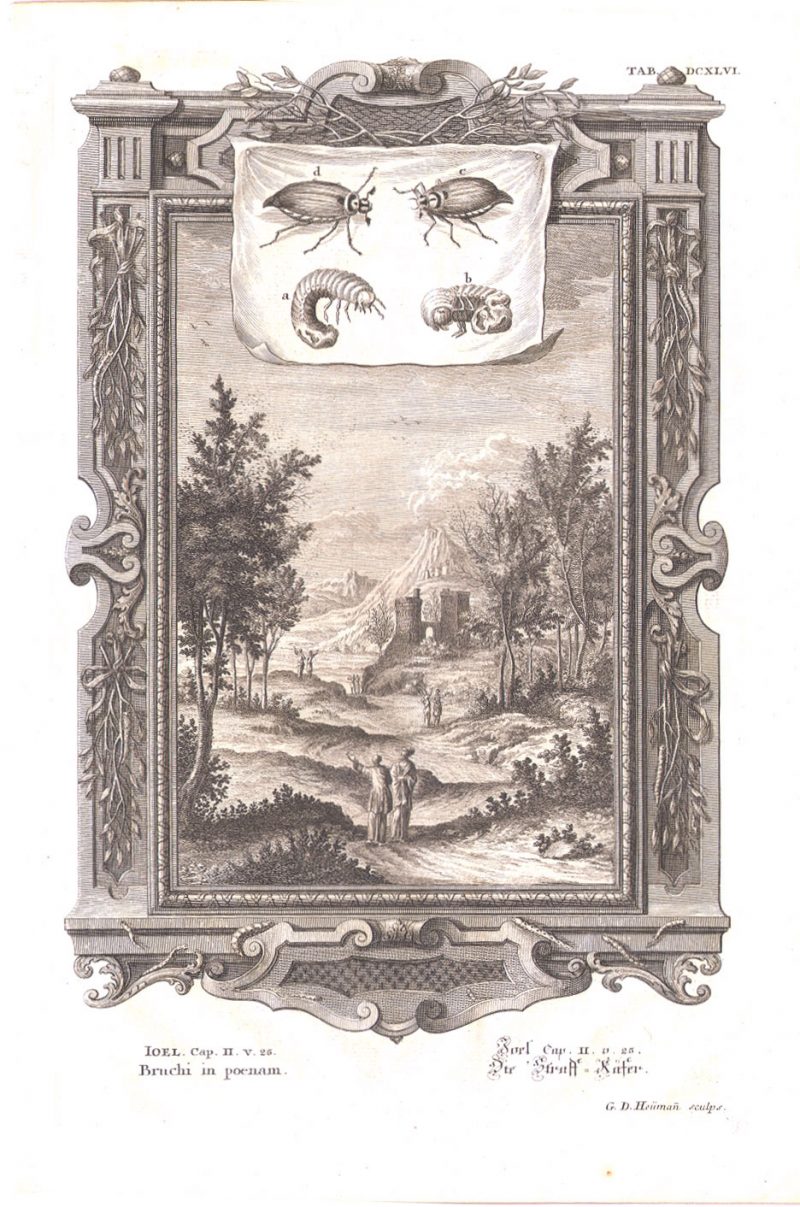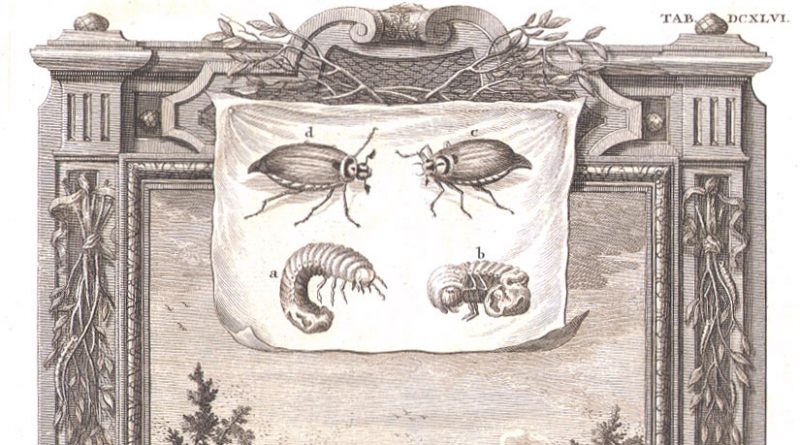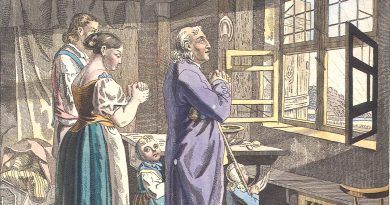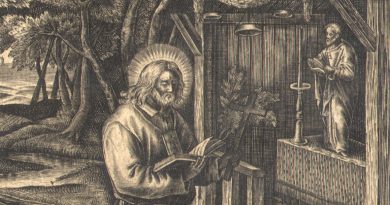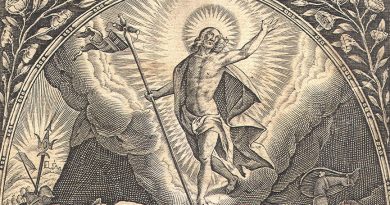A Plague of Beetles – Engraving from Scheuchzer’s Physica Sacra (Kupfer-Bibel)
Copperplate engraving from Scheuchzer’s “Physica Sacra,” A Natural History interpretation of the bible for the pages describing plagues of locusts and beetles.
Die Strass-Kaefer – Bruchi in poenam
Published between 1731 and 1735 in Augsburg
(1672-1733)
36 X 24 cm / 14 X 9.5 inches
The famous Swiss scientist Johann Jacob Scheuchzer is known as the the founder of paleobotany and European paleontology. He was professor of mathematics at the Carolinum, professor of physics at the Academy, and the director Zurich’s Museum of Natural History.
Scheuchzer believed that the Old Testament was a factual account of the history, of the world. As a scientist, he embarked on a major project to explain Biblical events in terms of physics, medicine, and natural history. His aim was to prove the existence of God through science, but the Swiss authorities initially refused to grant him a permit to publish it. Eventually a lushly illustrated edition of this extraordinary work as printed between 1731 and 1735 in the great German publishing center Augsburg.
Entitled, Jobi physica sacra, oder Hiobs Natur-Wissenschaft verglichen mit der heutigen, the work became known as the Physica Sacra. It became famous for its elaborate illustrations, in which each biblical story was framed with an architectural border containing details relevant to the chapter depicted. A massive encyclopedic work, it was known in German as the Kupfer-Bibel or “Copper Bible” for the copperplate illustrations in it which were drawn by Johann Melchior Füssli (Swiss, Zurich 1677–1736 Zurich) and engraved by different artists including German draughtsman and copperplate engraver Georg Daniel Heümann (Nuremberg, 1691–1759).
